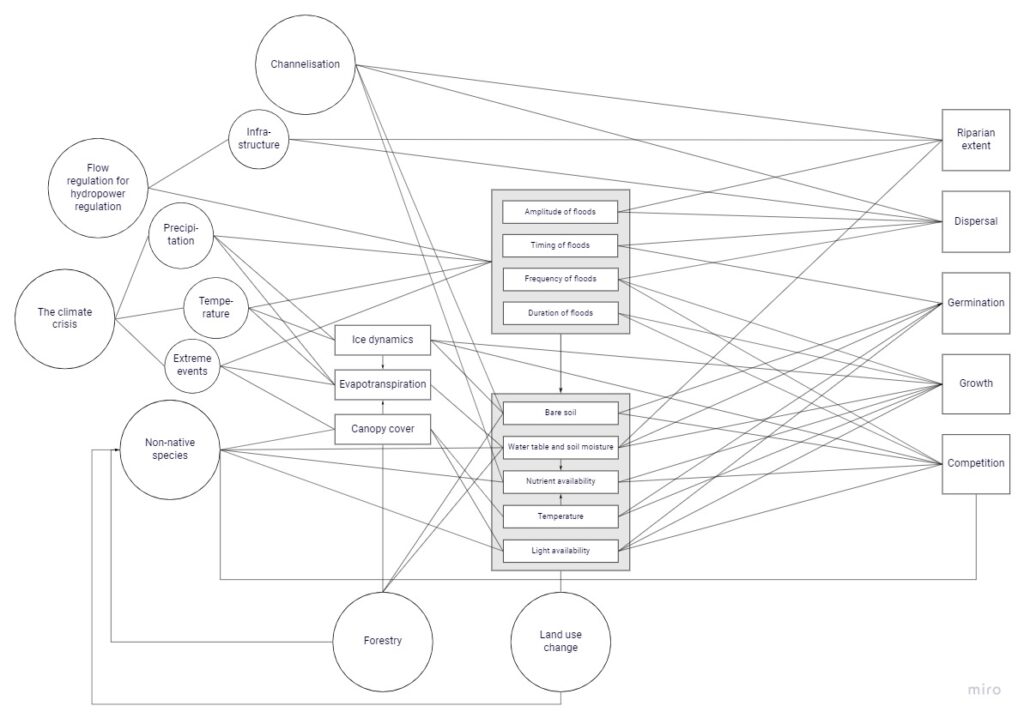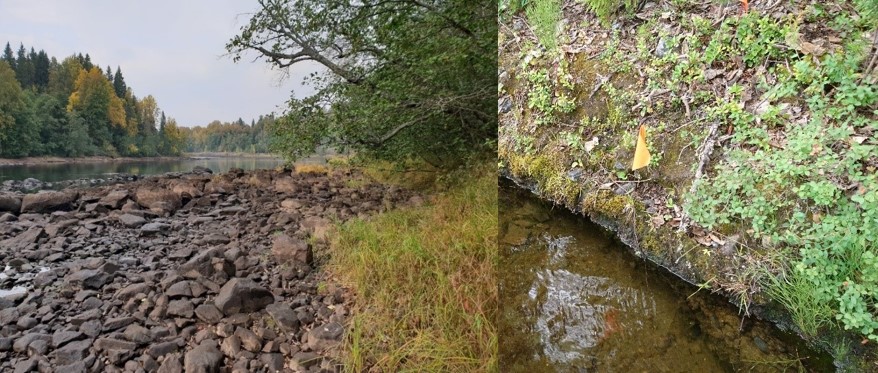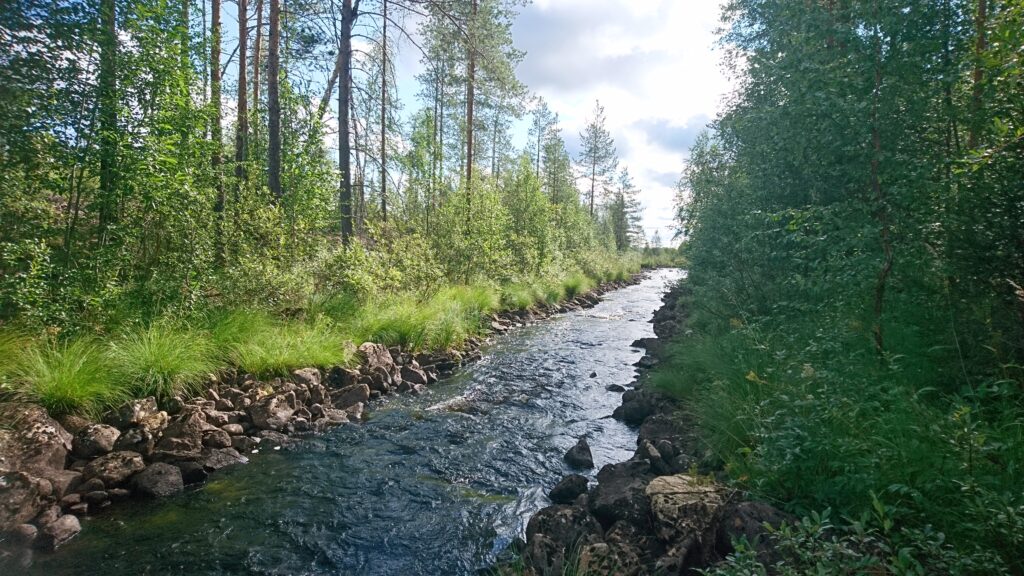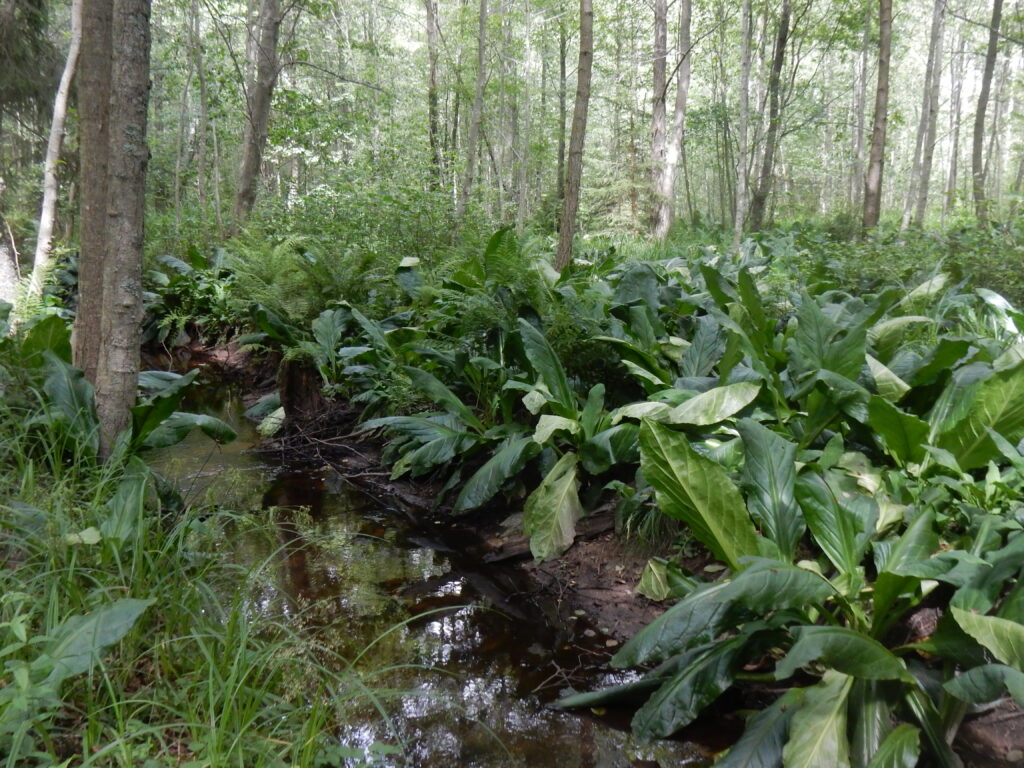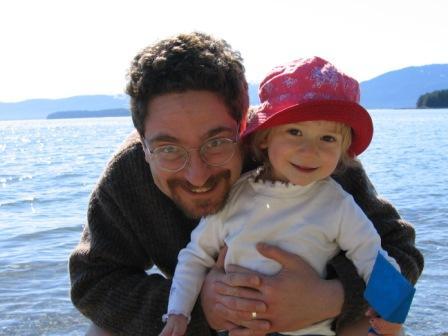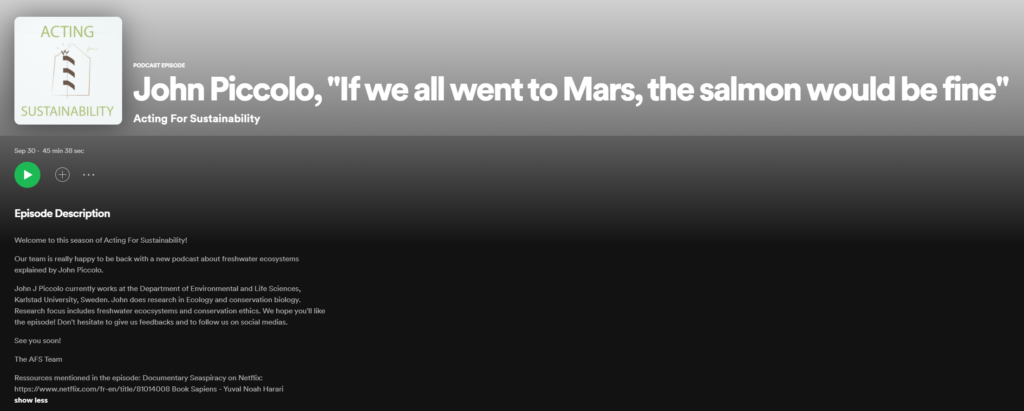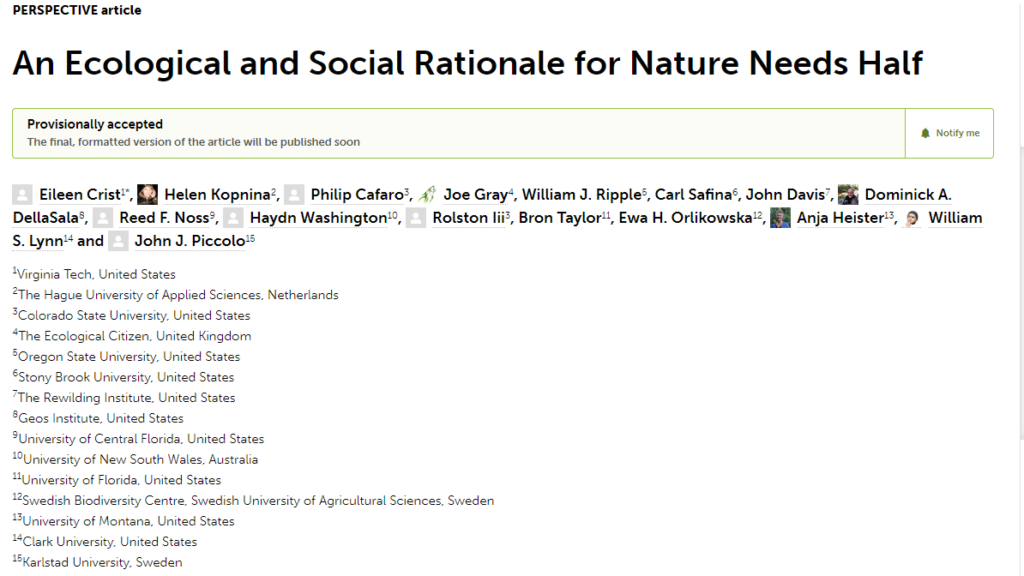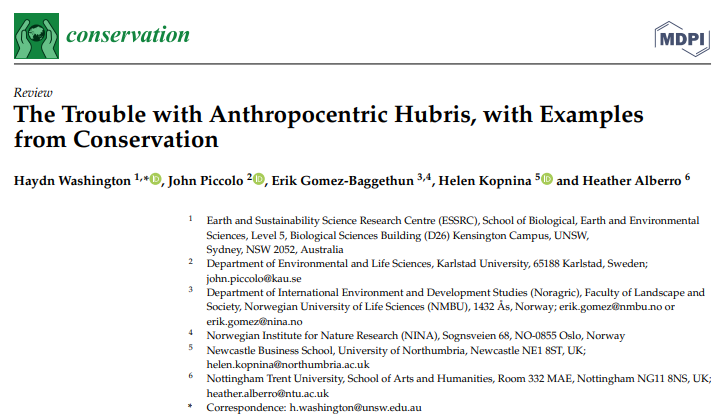New paper out: Pressures on boreal riparian vegetation: a literature review
Posted by Louis Addo | Applied Vegetation Science, Research, riparian vegetation, SustainabilityJacqueline Hoppenreijs, Lutz Eckstein and Lovisa Lind have a new paper out! It describes the different pressures of human activities on boreal riparian vegetation. They collected information from 182 scientific papers, books and reports and found that there are factors that are already damaging many rivers, such as hydropower (Figure 1), and factors that will become more important in the future, such as the climate crisis. More importantly, they found that these and other processes interact in ways that we don’t understand yet, simply because they’ve hardly been studied.
They combined all the effects of the pressures in one conceptual model (Figure 2), to help researchers, managers and everyone else who might be interested to ask more relevant research questions and balance different management measures with each other, so that riparian zones and the land and water around them can be protected better. The full paper is accessible through https://www.frontiersin.org/articles/10.3389/fevo.2021.806130/full#h6.
